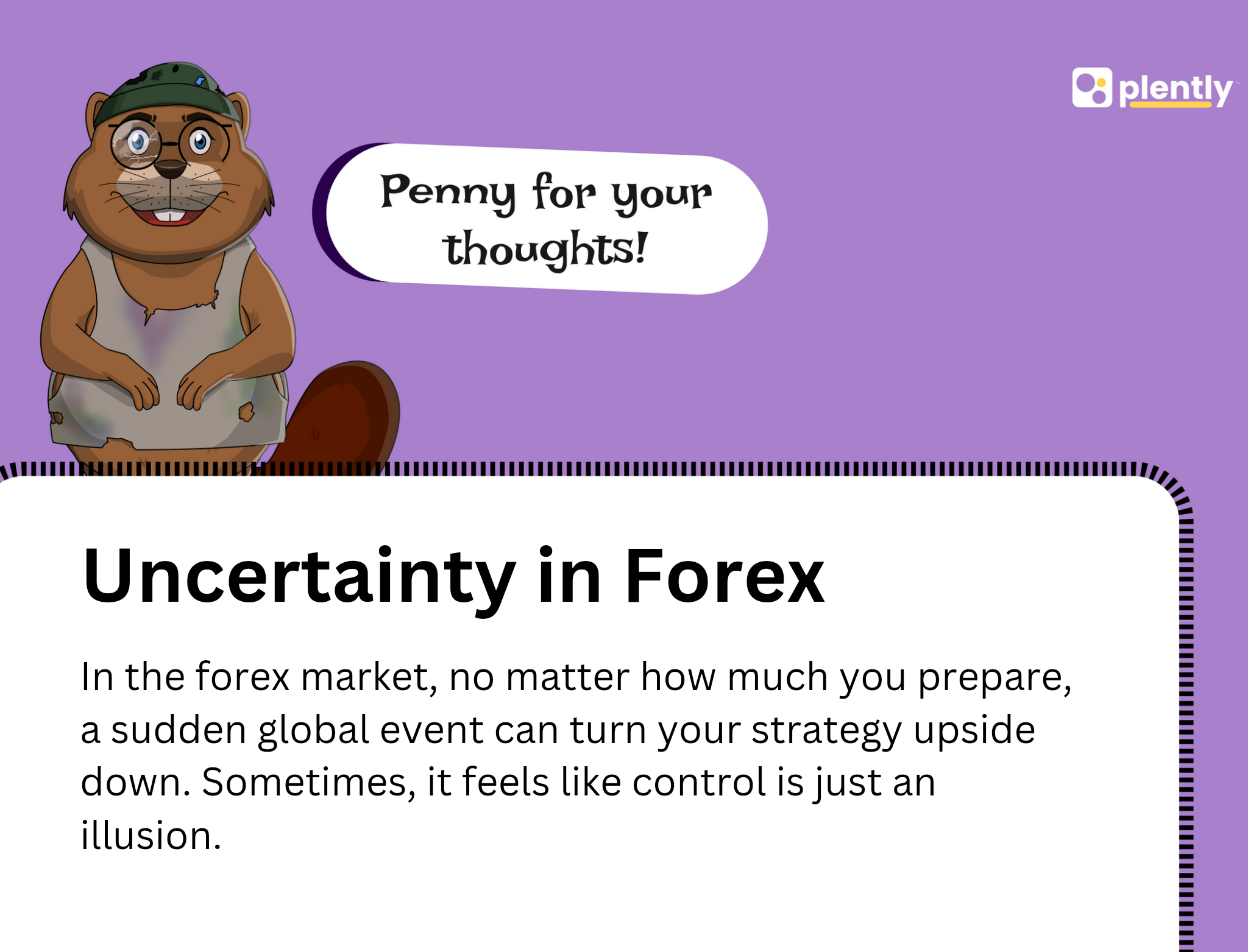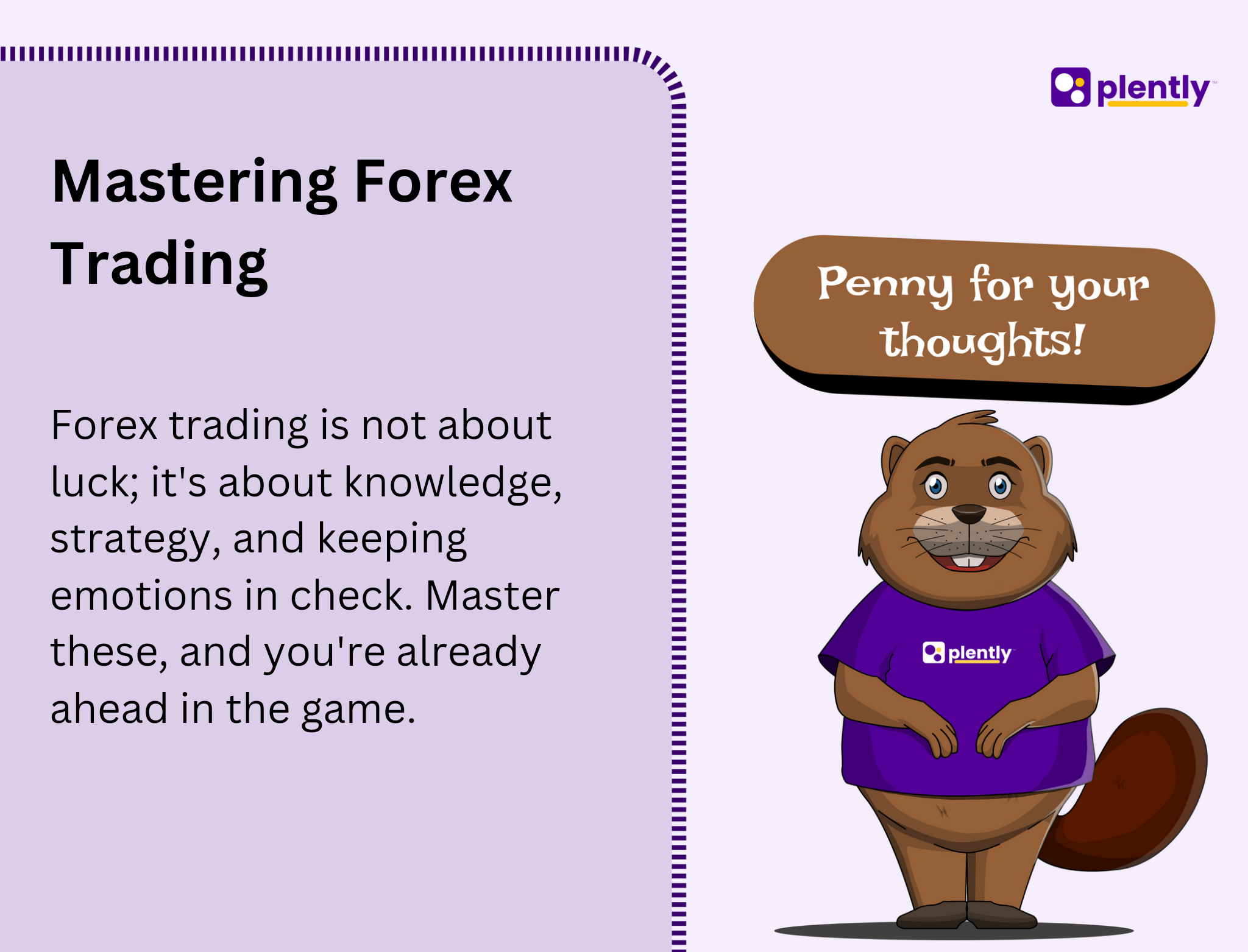Understanding the Basics of Forex Trading
7 mins read
Published on Sep 20, 2024

Introduction
Forex trading might sound intimidating, but in simple terms, it is the act of currency interchange involving most countries around the world. When you travel to a foreign country or buy goods online, you have already wielded yourself into the open forex market without knowing it. But as an investor, the world of possibility can be infinite — yet full of risk. This article will familiarize you with the basics of trading forex, so you'll be able to decide whether you would like to learn more.
An Overview of Forex
FOREX, short for 'foreign exchange', is the marketplace for the world's currencies against one another. Essentially, the forex market is one of the biggest and most liquid markets in the world. It is a 24/5 business. Here, the currencies are traded in pairs, like EUR/USD or GBP/JPY, which means that you sell one currency to buy another. Since the exchange rate formed between these pairs is due to different economic factors, the exchange rates never remain constant, and every trader tries to benefit from those changes.
How Does Forex Trading Work?
FOREX trading works by individuals, i.e., forex traders, profiting from the rise or fall in the value of one currency against another. It's like a game of prediction or foresight. If you think the euro is going to go up against the US dollar, you will purchase the EUR/USD pair. Assuming the euro indeed goes up, you can then resell it at a higher price. But then trading FOREX is not all luck; weighing market trends and global events, as well as indicators or factors that may affect them, is important to help make an informed decision.
1. Major Currency Pairs
Some currency pairs are more traded than others in the Forex market, and they are known as "major pairs." These include EUR/USD, USD/JPY, GBP/USD, and USD/CHF. These are the most traded pairs because they include the most widely used currencies in the world, which are generally more stable and liquid. For beginners, trading exotic pairs may not be ideal because major pairs are probably the more secure bet. The patterns are way more predictable, and they are less volatile.
2. Brokers and Trading Platforms
Brokers are firms responsible for facilitating entry into the Forex market using the trading platform. With these facilities, one can sell and buy currency pairs, look over real-time market data, and apply many kinds of tools and indicators to the analysis of the market. Most charge fees through spreads or commissions; therefore, it is very important to choose a competitive one with reliable service.
Factors Influencing Forex Markets

The value of currencies can fluctuate due to various factors, from changes in interest rates to global events. Understanding these influences helps traders predict market trends and make strategic decisions.
1. Interest Rates: Interest rates are arguably one of the primary tools that central banks use to manipulate and control the forex market. High interest rates generally tend to attract foreign capital and, therefore, cause currency appreciation, while low interest rates may depreciate it.
2. Economic Data: GDP growth, employment levels, and inflation in a country might seriously impact the currency. Generally, positive economic data heralds a good currency value, while its negation could hamper the value of a currency.
3. Political Stability: Political events, elections, and government policies can be another cause of currency fluctuation. A stable political condition normally improves the strength of a currency, while uncertainty or unrest does the opposite.
4. Global Events: Any natural disasters, pandemics, or geopolitical tensions can bring about short-term changes in currency prices. The COVID-19 pandemic had massive effects on volatility in the forex market, following various economic measures taken by countries around the world.
Successful Forex Trading Strategies
To succeed in forex trading, having a solid strategy is key. Whether you're crafting a trading plan, practicing with a demo account, or staying updated on market news, each strategy helps in building a disciplined and informed approach to trading.
1. Educate Yourself: Having the correct information will help you in forex trading. Start learning the basics of forex, then move on to technical analysis, market trends, and economic indicators of the currencies you want to trade. You can easily get online courses, webinars, or even books to help build up your trading skills.
2. Trading Plan: This means an outline of the goals, risk tolerance, and methods used in a trading activity. It helps to maintain discipline and avoid emotional trades. A good trading plan has entry and exit points, some risk management rules, and indicators of how performance can be judged.
3. Practice with a Demo Account: It is better to test your trading with a demo account before going into business with actual money. It could help you work on your strategies in a risk-free environment and further build your confidence in trading.
4. Start Small: If, at any point, you feel ready to start trading with real money, go small. This is done to mitigate the risk of large losses while learning and honing your strategies. As you clock in experience and confidence, slowly start to grow your trading size.
5. Keep Emotions in Check: Trading forex is an emotional affair, more so when the market is highly volatile. The two most prevalent emotions are fear and greed, which contribute to making ill-informed choices. Stick to your trading plan and avoid making impulsive trades based on emotions.
6. Watch the Market: Stay attuned to current events. Explore the published economic reports and central bank decisions that are likely to influence the forex market. This will assist you in reviewing your trades often and altering your trading strategies as market conditions change. The more you do this, the better your results will be.

Conclusion
Forex trading can, therefore, be a very exciting business venture if you're equipped with the proper knowledge and alertness. To be successful in trading, start by learning the basics of the trade, key terminologies, and market influences. With every new thing you learn and experience you get, you will become even more prepared to deal with the hitches of the forex market and improve your personal finance situation.
Last updated: Sep 12, 2024
Share this with your friends and family
Join the money party
Level up your financial game with our exclusive blog updates, delivered straight to your inbox
Other articles you might enjoy

Aug 2, 2025
How To Protect Your Finances From Identity Theft and Synthetic Fraud

Jul 25, 2025
Money Traps to Avoid in Your 20s (That No One Warns You About)

Jul 17, 2025
How to Financially Prep for a Layoff (Before It Happens)

Jun 26, 2025
2025 Tax Guide for Freelancers: How to Handle 1099 Income, Self-Employment, & More
Join the #1 banking app for the Commonwealth
Get started on Plently
Rosemary D.
Phia Consultants
It's like having the best financial partner in my pocket!

Jonathan G.
Open Space Inc
Plently has truly transformed my financial life.

Emily H.
Student
With their user-friendly interface and innovative tools, managing my money has become a breeze.

Margaret D.
Small Business Owner
I finally feel in control of my finances, thanks to Plently!

Alexander P.
Small Business Owner
After Plently, I can't imagine going back to traditional banking!

Oliver A.
Student
Being a part of a Money Circle has been a game-changer for me. It's not just about financial contributions; it's a supportive community working together towards shared goals

Loading comments...